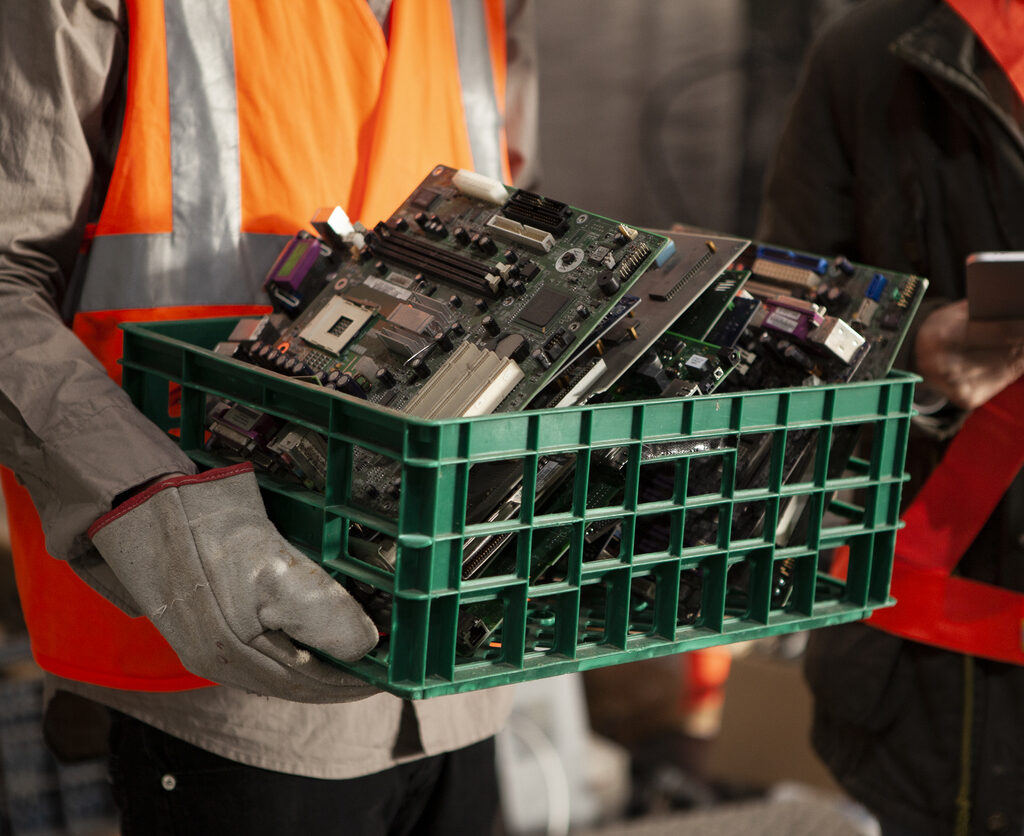The world’s generation of electronic waste is rising five times faster than documented e-waste recycling, the UN’s fourth Global E-waste Monitor (GEM) revealed on Thursday 21 March.
The 62 million tonnes of e-waste generated in 2022 would fill 1.55 million 40-tonne trucks, roughly enough trucks to form a bumper-to-bumper line encircling the equator, according to the report from ITU and UNITAR.
Meanwhile, less than one quarter (22.3 per cent) of the year’s e-waste mass was documented as having been properly collected and recycled in 2022, leaving USD 62 billion worth of recoverable natural resources unaccounted for and increasing pollution risks to communities worldwide.
Worldwide, the annual generation of e-waste is rising by 2.6 million tonnes annually, on track to reach 82 million tonnes by 2030, a further 33 per cent increase from the 2022 figure.
E-waste, any discarded product with a plug or battery, is a health and environmental hazard, containing toxic additives or hazardous substances such as mercury, which can damage the human brain and coordination system.
The report foresees a drop in the documented collection and recycling rate from 22.3 per cent in 2022 to 20 per cent by 2030 due to the widening difference in recycling efforts relative to the staggering growth of e-waste generation worldwide.
Challenges contributing to the widening gap include technological progress, higher consumption, limited repair options, shorter product life cycles, society’s growing electronification, design shortcomings, and inadequate e-waste management infrastructure.
The report underlines that if countries could bring the e-waste collection and recycling rates to 60 per cent by 2030, the benefits – including through minimising human health risks – would exceed costs by more than USD 38 billion.
It also notes that the world “remains stunningly dependent” on a few countries for rare earth elements, despite their unique properties crucial for future technologies, including renewable energy generation and e-mobility.
Nik hil Seth is the Executive Director of UNITAR.
“Amidst the hopeful embrace of solar panels and electronic equipment to combat the climate crisis and drive digital progress, the surge in e-waste requires urgent attention,” he said.












